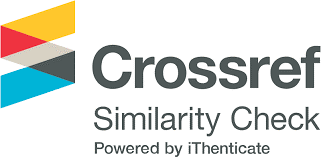A Case Study of a Didactic Platform Experiments using Off-the-Shelf Hardware
DOI:
https://doi.org/10.18618/REP.e202501Keywords:
Power electronics, hands-on learning, experiential learning, educational platformAbstract
This paper explores the essential role of power electronics in modern electrical engineering and emphasizes the need for practical, hands-on learning experiences. By utilizing an easily-accessible, modular educational platform consisting of the DSP TI C2000 LAUNCHXL-F280049C and the BOOSTXL-3PHGANINV three-phase inverter module from Texas Instruments, students can bridge the gap between theoretical knowledge and practical application. Detailed descriptions of the hardware, along with case studies on a bidirectional boost converter and a three-phase inverter, illustrate the effectiveness of this approach. The findings show that integrating experiential learning methodologies significantly enhances student engagement and comprehension. The platform enables students to simulate, prototype, and experimentally verify their designs, promoting a deeper understanding of power electronics principles. The paper concludes by highlighting the potential for expanding this educational framework to include additional modules and applications, thereby preparing students more effectively for the evolving demands of the power electronics industry.
Downloads
References
W. C. Sant’Ana, B. R. Gama, G. Lambert-Torres, E. L. Bonaldi, L. E. L. Oliveira, F. O. Assuncao, D. A. Arantes, I. A. S. Areias, L. E. Borges-Da-Silva, F. M. Steiner, “Development of a Modular Educational Kit for Research and Teaching on Power Electronics and Multilevel Converters”, IEEE Access, vol. 9, pp. 127496–127514, 2021. DOI: https://doi.org/10.1109/ACCESS.2021.3112531
N. Mohan, T. M. Undeland, W. P. Robbins, Power Electronics: converters, applications, and design, 2nd ed., John Wiley & Sons, Inc., New York, N.Y., 1995.
D. Dujic, A. Cervone, C. Li, P. Bontemps, Y. Frei, “Teaching Power Electronics: How to Achieve the Desired Learning Outcomes?”, IEEE Power Electronics Magazine, vol. 9, no. 4, pp. 45–53, 2022. DOI: https://doi.org/10.1109/MPEL.2022.3216094
R. Araujo, H. Teixeira, J. Barbosa, V. Leite, “A hardware tool for explained power electronics control of induction motors”, in 2005 European Conference on Power Electronics and Applications, pp. 8 pp.–P.8, 2005. DOI: https://doi.org/10.1109/EPE.2005.219723
B. S. Dupczak, “Protótipos Didáticos para o Ensino Dos Conversores CC-CC”, Eletrônica de Potência, vol. 27, no. 3, p. 244–253, Sep. 2022. DOI: https://doi.org/10.18618/REP.2022.3.0033
F. S. Garcia, A. A. Ferreira, J. A. Pomilio, “Plataforma De Ensino De Eletrônica De Potência Versátil e de Baixo Custo”, Eletrônica de Potência, vol. 13, no. 2, p. 85–90, May 2008. DOI: https://doi.org/10.18618/REP.2008.2.085090
M. A. C. Pereira, M. A. M. Barreto, M. Pazeti, “Application of Project-Based Learning in the first year of an Industrial Engineering Program: lessons learned and challenges”, Production, vol. 27, no. spe, 2017. DOI: https://doi.org/10.1590/0103-6513.223816
M. Sankey, “Putting the pedagogic horse in front of the technology cart”, 04 2019.
I. de los Ríos, A. Cazorla, J. M. Diaz-Puente, J. L. Yague, “Project–based learning in engineering higher education: two decades of teaching competences in real environments”, Procedia - Social and Behavioral Sciences, vol. 2, no. 2, pp. 1368–1378, 2010. DOI: https://doi.org/10.1016/j.sbspro.2010.03.202
Z. Zhang, C. T. Hansen, M. A. E. Andersen, “Teaching Power Electronics With a Design-Oriented, Project-Based Learning Method at the Technical University of Denmark”, IEEE Transactions on Education, vol. 59, no. 1, pp. 32–38, 2016, doi:10.1109/TE.2015.2426674. DOI: https://doi.org/10.1109/TE.2015.2426674
P. Donoso-Garcia, P. Cortizo, L. Morais, “Ensino Orientado Ao
Projeto: Uma Experiencia Para O Ensino De Eletrônica Nas Disciplinas De Laboratório De Eletrônica E Eletrônica De Potência”, Eletrônica de Potência ˆ , vol. 13, no. 2, p. 109–116, May 2008. DOI: https://doi.org/10.18618/REP.2008.2.109116
L. Koleff, L. Araujo, M. Zambon, W. Komatsu, E. L. Pellini, L. M. Junior, “A flexible didactic platform for thyristor-based circuit topologies”, Eletrônica de Potência, vol. 25, no. abr./ju, pp. 154–162, 2020. DOI: https://doi.org/10.18618/REP.2020.2.0012
J. V. G. França, J. H. D. G. Pinto, D. d. C. Mendonça, J. V. M. Farias, R. O. d. Sousa, H. A. Pereira, S. I. Seleme Junior, A. F. Cupertino, ´ “Development of a Didactic Platform for Flexible Power Electronic Converters”, Eletronica de Potência ˆ , vol. 27, p. 225–235, Aug. 2022. DOI: https://doi.org/10.18618/REP.2022.3.0012
J. A. Pomilio, “Atividades Didáticas Experimentais em Eletrônica de Potência: Convergindo Conhecimentos e ˆ Tecnologias”, Eletrônica de Potência, vol. 25, no. 2, p. 146–153, Jun. 2020. DOI: https://doi.org/10.18618/REP.2020.2.0023
E. A. Vendrusculo, A. A. Ferreira, J. A. Pomilio, “Plataforma Didática Para Avaliação Rápida E Experimental De Estratégias De Controle Em Eletrônica De Potência”, Eletrônica de Potência, vol. 13, no. 2, p. 99–108, May 2008. DOI: https://doi.org/10.18618/REP.2008.2.099108
D. Dujic, A. Cervone, R. Barcelos, J. Mace, M. Dupont, “Learning With Your PETS”, IEEE Power Electronics Magazine, vol. 10, pp. 53–61, 12 2023. DOI: https://doi.org/10.1109/MPEL.2023.3327669
F. G. Nimitti, A. M. Andrade, “Unraveling Bidirectional Converter Capabilities: a Didactic Platform for Proving Dual-Direction Operation Based on Current Injection”, Eletrônica de Potência, vol. 28, no. 4, p. 287–294, Dec. 2023. DOI: https://doi.org/10.18618/REP.2023.4.0020
CEFET-MG, “Laboratorio de Eletrônica de Potência, Acionamentos e Controle de Processos Industriais.”, Accessed August 3, 2024, URL: https://www.leacopi.cefetmg.br/.
TI, C2000™ Piccolo™ F28004x Series LaunchPad™ Development Kit, June 2018, user’s Guide.
TI, “48-V, 10-A, High-Frequency PWM, 3-Phase GaN Inverter Reference Design for High-Speed Motor Drives.”, Accessed August 20, 2024, URL: https://www.ti.com/lit/ug/tiduce7b/tiduce7b.pdf?ts=1673467385449.
TI, “BOOSTXL-3PHGANINV.”, Accessed May 4, 2024, URL: https: //www.ti.com/tool/BOOSTXL-3PHGANINV.
Plexim, “PLECS, The Simulation Platform for Power Electronic Systems.”, Accessed May 4, 2024, URL: https://www.plexim.com/products/plecs.
TI, “TMS320F28004x Real-Time Microcontrollers Guide.”, Accessed July 2, 2024, URL: https://www.ti.com/lit/ds/symlink/tms320f280049c.pdf?ts=1713874244595&refurl=https%253A%252F%252Fwww.ti.com%252Fproduct%252FTMS320F280049C.
Downloads
Published
How to Cite
Issue
Section
License
Copyright (c) 2025 Daniel H. C. Santos, Bruno de Araujo Coutinho, Augusto Santos Cordeiro, Marcelo Martins Stopa, Allan Fagner Cupertino

This work is licensed under a Creative Commons Attribution 4.0 International License.















